Electricity
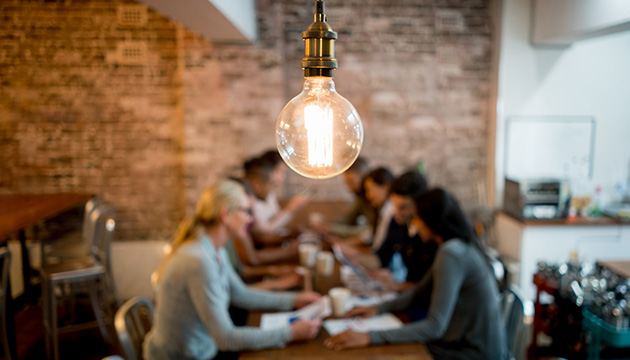
Electricity
We aim to make electricity a major business for Shell, one that could sit alongside oil, gas and chemicals. This means being involved at almost every stage of the power supply system, from generating electricity, to buying and selling it, to supplying it directly to customers.
Electricity from renewable sources, such as wind and solar, can be combined with the electricity produced from natural gas. Together, they can provide cleaner sources of power.
We are expanding our existing electricity businesses and moving into new areas, building on the strength of both our brand and our global presence.
Shell already plays a significant role as an electricity trader and wholesale supplier in North America. We manage more than 10,000 megawatts (MW) of power generation in the continent, enough to power around 5 million homes, with more than a third coming from renewables. We have a growing trading business in Europe and we are entering other markets. For example, in 2018, Shell Energy Australia executed our first power trade at the Australian Securities Exchange and we are also preparing to start an electricity trading business in Japan in 2019.
In the USA and Europe, we are involved in electricity generation through wind and solar projects.
For the residential market, we are starting to supply directly to customers and providing charging points to electric vehicle drivers both in and outside our retail stations.
In addition, we are developing ways to provide electricity to those who have unreliable access, or none at all. Shell’s ambition is to provide a reliable electricity supply to 100 million people in the developing world by 2030. We continue to work on developing a longer-term strategy to achieve this ambition.
Wind
We first entered the wind business in 2001, in the USA. Today, we have five onshore wind farms in operation in the USA, and one offshore wind farm in operation in the Netherlands. We also have interests in three wind projects under development – two in the USA and one in the Netherlands. Once built, these projects will have a total installed capacity of more than 5 gigawatts (GW).
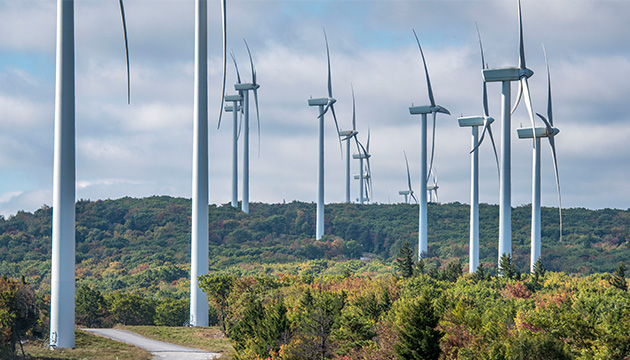
Shell has five onshore wind farms in operation in the USA.
The Netherlands wind project is led by the Blauwwind consortium (Shell interest 20%), which will build and operate Borssele III and IV wind farms. These wind farms are designed to have a total installed capacity of 731.5 MW, enough to power around 825,000 Dutch households. Half of the electricity generated from this wind farm will be marketed by Shell Energy Europe Limited to supply customers with renewable power.
In 2018, we made a move into US offshore wind, announcing two joint ventures to develop wind farms off New Jersey and Massachusetts, both 50% Shell-owned, which would have a total installed capacity of 4 gigawatts.
Solar
In 2018, we acquired a 44% interest in Silicon Ranch Corporation, a US developer, owner and operator of solar assets; this includes about 1.4 GW capacity of operational or contracted projects.
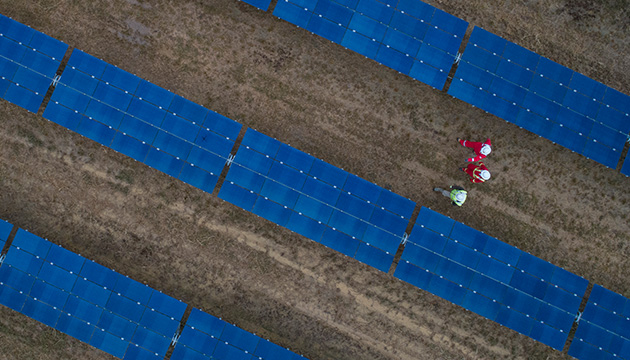
The Silicon Ranch solar power project is located in Nashville, Tennessee, USA.
Shell has also acquired a 49% interest in Cleantech Solar, which provides solar power to commercial and industrial customers across South East Asia and India. This Singapore-based solar developer owns more than 120 solar power projects, with most in operation and the rest under construction or development. In total, its installations, once fully built, represent up to 200 MW of power.
We have also invested in the Sunseap Group through our corporate venturing arm Shell Ventures. Sunseap has around 160 MW of distributed solar contracts, an electricity retailer licence in Singapore and large-scale solar projects.
In the UK, we increased our position in renewable power in 2018 after Shell Energy Europe signed a five-year deal with British Solar Renewables to buy all the electricity generated by the Bradenstoke solar power plant in Wiltshire. The plant generates around 65 mega-watt hours a year.
Shell Energy Europe also signed a five-year deal with Octopus to buy electricity from its 70.5 MW portfolio of Italian solar assets.
In the USA, Shell Energy North America signed a 15-year agreement to purchase solar power from EDF Renewables North America in California and a 12-year agreement to purchase solar power from the Phoebe solar photovoltaic project in Texas.
We are starting to deploy solar photovoltaic in our own operations, including offices, retail sites, distribution terminals, refineries and offshore installations. In California, USA, for example, we have delivered a photovoltaic project to provide on-site solar power to the Stockton fuels distribution terminal. Shell is also developing a solar power plant at its Moerdijk chemicals site in the Netherlands.
Distributed and household energy
In 2018, we started supplying energy to residential customers directly in the UK for the first time when we acquired First Utility (Shell Petroleum Company Limited), an energy provider that supplies around 720,000 homes. It is also active in Germany.
The residential market is changing fast, with new technologies such as smart meters, smart thermostats and other intelligent appliances. These devices allow people to monitor and control their consumption better – for instance, by programming large appliances to run at a time when electricity is cheaper. This helps to balance the electricity grid at peak times when supplies are most stressed.
One further trend is known as distributed energy. This is when customers, big and small, begin to generate their own on-site power through solar panels or wind turbines, store it and potentially redistribute it back into the grid.
In 2018, Shell acquired a majority interest in GI Energy, a US company that focuses on the integration of distributed energy resources. GI Energy builds microgrids and on-site energy systems for commercial and industrial customers. In February 2019, we acquired sonnen, which provides smart energy storage systems and innovative energy services for households.
Access to energy
Around 1 billion people live without access to electricity and a billion more only have access to unreliable power supplies.
In 2018, we outlined our new ambition to provide a reliable electricity supply by 2030 to 100 million people in the developing world. We plan to do this by investing in commercial businesses and by supporting innovation. In this way, we help to achieve the UN’s sustainable development goal 7, which calls for access to affordable, reliable, sustainable and modern energy for all. We continue to work on developing a longer-term strategy to achieve our ambition.
We see a commercial opportunity to invest in energy access solutions in Africa and Asia. Our approach focuses on proven technologies and business models that can be deployed on a large scale. These include mini-grids and decentralised solar energy systems that can power homes, businesses and communities.
We have invested in several companies that provide electricity systems to residential, commercial and industrial sectors.
In 2018, we invested in Husk Power Systems, a mini-grid company with experience in India that has recently expanded into Tanzania. Husk uses a hybrid solar photovoltaic and biomass gasification system with battery storage to provide reliable and affordable electricity 24 hours a day to customers on a pay-as-you-go basis.
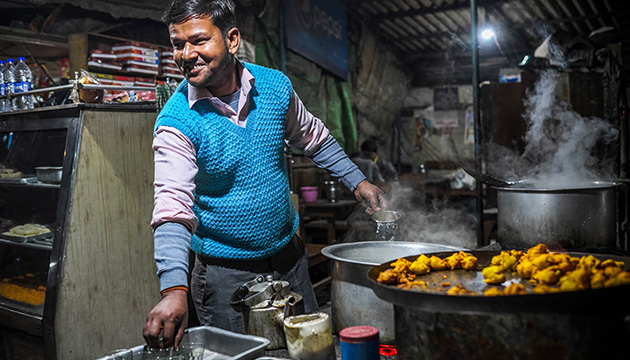
Husk Power Systems serves a mix of rural households and businesses.
We have invested in SolarNow, a business which provides decentralised solar energy solutions to unserved and underserved customers in East Africa. SolarNow operates through a network of branches in Kenya and Uganda, offering customers a range of solar home systems and appliances.
In addition to investing in companies that are bringing more reliable electricity to customers, we are also investing in those that support the broader energy access ecosystem. For example, SteamaCo is an off-grid smart metering technology company, providing utilities in frontier markets with the tools to automate the management of decentralised energy assets. The company automates hundreds of distributed energy assets, which in turn bring electricity to tens of thousands of homes and businesses across Africa.
We also invested in SunFunder, a solar debt financing firm that supports the growth of commercial businesses improving energy access. Sunfunder has loaned more than $55 million to different solar companies.
In addition to commercial energy access activities, we help to provide reliable and safe energy through our social investment programmes. For example, when Shell started to look for potential business opportunities in Myanmar, we also explored ways to deliver the benefits of reliable energy to communities in the Tanintharyi region. Working with Pact, a non-profit organisation, to provide access to sustainable energy, we have improved the livelihoods of around 35,000 people since 2015.
In the Philippines, we launched a project in 2018 at the Logpan village near our Palawan offshore activities to help the remote and off-grid community access energy and clean water. We developed a community-run solar-powered energy kiosk that offers small solar home systems for households and operates a solar-powered water pump to provide safe, filtered water.
We also worked in Malaysia with non-governmental organisations Tonibung and PACOS Trust to bring electricity to Saibibingkol community in Sabah. The pilot programme uses solar panels and a hydro turbine to give 42 households access to a reliable source of electricity. We also set up a socioeconomic development centre in the village for people to use the electricity for income-generating activities, such as sewing or more efficient drying of tapioca chips and flour milling. We plan to scale up these efforts to bring electricity to at least two more villages in 2019.
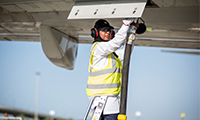 Our people
Our people
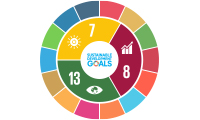 Sustainable development goals
Sustainable development goals
 About our data
About our data
 Electricity
Electricity